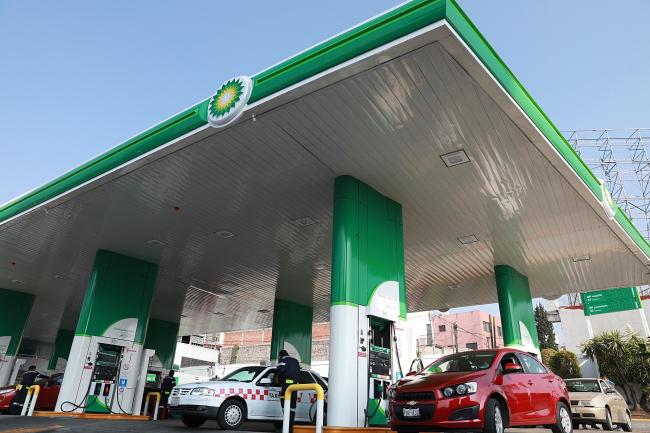(Bloomberg) -- BP (LON:BP) Plc joined its Big Oil peers by giving investors a positive surprise, exceeding profit estimates and earning better returns than its closest European rival.
New projects delivered an increase in oil and gas output, while the company also worked its existing fields and refineries more efficiently than ever. That helped offset the impact of a slump in crude prices in the fourth quarter.
The better-than-expected earnings should give shareholders some comfort after BP took on more debt to pay for a swathe of U.S. shale assets, its biggest deal in 20 years. The company has shown more “flexibility” than its peers as it seeks to snap up assets and boost production, Colin Smith, an analyst from Panmure Gordon & Co. Plc, said before the earnings.
Six major projects started up in 2018 and oil and gas output rose 2.4 percent to 3.683 million barrels of oil equivalent a day, the first of several years of forecast growth.
“We now have a powerful track record of safe and reliable performance, efficient execution and capital discipline. And we’re doing this while growing the business,” Chief Executive Officer Bob Dudley said in a statement on Tuesday. “Our strategy is clearly working.”
Strong Returns
The London-based oil major said adjusted net income was $3.48 billion in the fourth quarter, beating analyst estimates of $2.64 billion. Profit for the full year was $12.72 billion, as high as when oil was trading close to $100 a barrel.
Upstream facilities, such as oil platforms, ran with record reliability of 96 percent and refining throughput was also the highest ever, the company said. Return on average capital employed was 11.2 percent last year, up from 5.8 percent in 2017. Royal Dutch Shell (LON:RDSa) Plc’s comparable number was 7.6 percent.
“We see this as a strong set of results,” RBC Capital Markets analyst Biraj Borkhataria said in a note. “We see the right balance of growth, longevity and defensiveness in the business.”
BP faces a trickier balancing act between output growth with financial discipline than some of its peers. It’s still recovering from the 2010 Deepwater Horizon catastrophe, which killed 11 people and cost it more than $60 billion in penalties and compensation.
Last year, BP purchased $10.5 billion of shale assets from BHP Billiton (LON:BHPB) Ltd., paying entirely in cash. It plans to sell as much as $6 billion of older U.S. onshore fields to reduce debt accrued in the purchase. The company exceeded its $3 billion divestment program for 2018.
Gearing, the ratio of net debt to total equity, rose to 30.3 percent last quarter, the highest level in at least a decade. BP has said indebtedness will fall as new projects come online and cash flow rises, although that will now happen more slowly than previously anticipated.
In the previous quarter, the company told investors to expect it to return to the middle of its 20 percent to 30 percent target range by the end of 2019. Today it said that will now happen in 2020.
"We’ll bring the gearing back down,” Dudley said in an interview with Bloomberg television. “I’m not concerned about ticking outside the range a little bit.”
(Updates with details on returns in first paragraph.)
